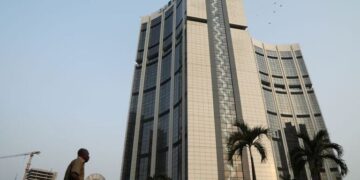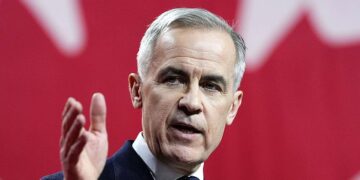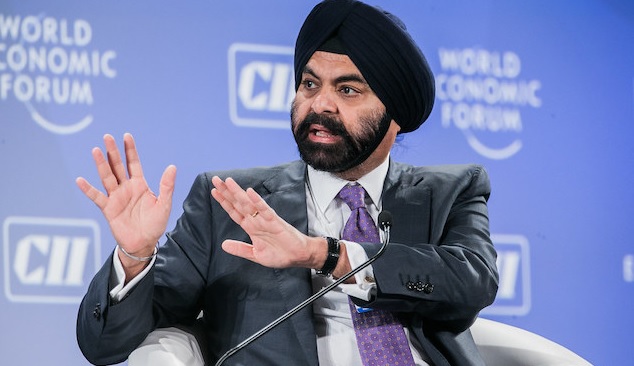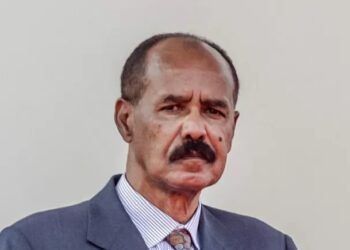By Emmanuel Nduka
World Bank President, Ajay Banga, has stated that Africa’s debt servicing is consuming 7.6 percent of its gross domestic product (GDP).
Banga who stated this on Thursday, at a joint International Monetary Fund (IMF) – World Bank seminar, said the debt servicing ratio is more than the continent’s education and healthcare budget combined.
Responding to questions at the seminar titled ‘Reform Priorities for Tackling Debt,’ Banga said Africa’s education and healthcare budget is 5.6 percent of the continent’s GDP.
“Sub-saharan Africa, these days, is paying for all the reasons Kristiania (IMF MD) pointed out – interest rates are doubled and so on.
“They are paying 7.6 percent of their GDP to pay back the interest cost on debt. You could say is 7.6 percent so bad – for comparison, what they spend on education and healthcare together, is 5.6 percent,” he said.
Banga added that the impact of the debt weighing on revenue is that it prevents the governments from investing in human capital, infrastructure and other things that need to aid the growth of the countries in future.
The situation is also affecting the ability of domestic banks to adequately support the private sector with loans, as the financial institutions have to back the government financially, Banga said.
The World Bank said if foreign investors consider the impacts of governments’ debts on their ability to invest in critical sectors and infrastructure, as well as the impact it has on the banks, they would not want to invest their money in Africa.
“So, even as banks doesn’t have headroom to be able to facilitate private sector investing locally. And as an overseas investors, and you take a look at this picture, and you see 7.6 (percent), 5.6 (percent), not enough spending on the other things, crowding out of the private sector domestically, you don’t tend to feel comfortable putting money in that country.
“So basically, it is a casketing issue of bad news. It starts from paying too much for your debt, that crowds up what you can spend on other things, the private sector gets crowded out and overseas people don’t come in – all four things add up,” Banga added.
While Banga said people should not see debt as a bad thing, he said the problem with debt is when it is out of proportion to what a country can manage.



































